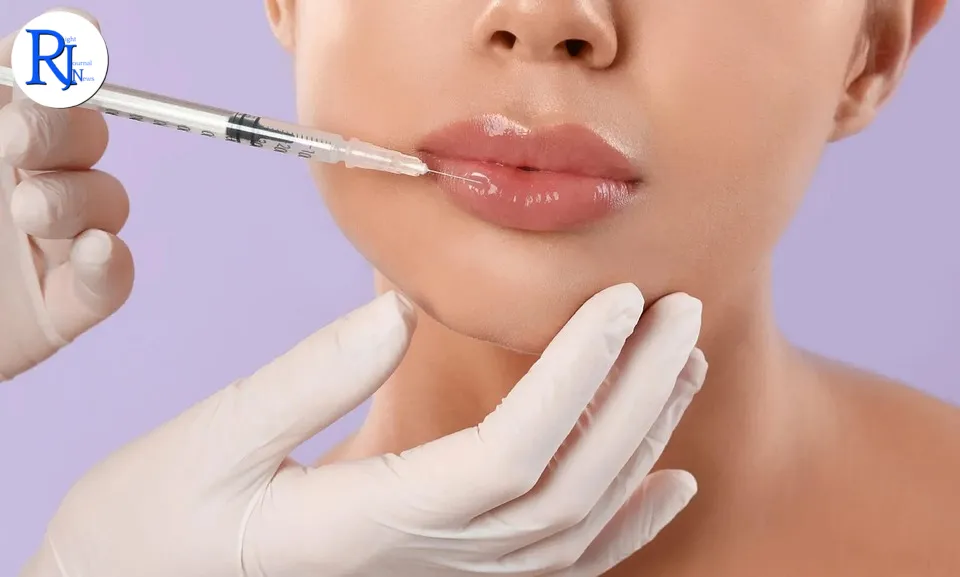In a decisive move to safeguard public health, the UK government has announced a major crackdown on unregulated cosmetic clinics across England. The new regulations, set to be enforced from early next year, will require all Botox and dermal filler practitioners to obtain a licence. This measure aims to curb the rising number of unqualified individuals offering potentially harmful cosmetic procedures.
The initiative comes amid growing concerns over the safety of cosmetic treatments, with reports of botched procedures and adverse effects on the rise. Health Minister Sarah Jones stated, “Our priority is the safety and wellbeing of the public. These new regulations will ensure that only qualified professionals can administer these treatments, reducing the risk of harm.”

Rising Concerns Over Cosmetic Procedures
The decision to implement stricter regulations follows a surge in demand for cosmetic treatments, particularly Botox and dermal fillers, over the past decade. With beauty standards increasingly influenced by social media, more individuals are turning to these procedures in pursuit of the ideal appearance.
However, this trend has also seen a proliferation of unqualified practitioners offering services at cut-rate prices. According to a study by the British Association of Aesthetic Plastic Surgeons (BAAPS), complaints about cosmetic procedures have doubled over the past five years, with many cases involving unlicensed individuals.
Dr. James Campbell, a leading cosmetic surgeon, emphasised the importance of regulation, noting, “The lack of oversight has allowed untrained practitioners to exploit vulnerable individuals. Licensing will help ensure that patients receive safe and effective treatments.”
New Licensing Requirements Explained
Under the new regulations, practitioners will need to demonstrate their qualifications and undergo rigorous training before obtaining a licence. The government will establish a central register to monitor compliance and ensure that only licensed individuals can offer these services.
The licensing process will include checks on medical credentials, a mandatory training programme, and adherence to strict hygiene standards. Clinics that fail to comply risk facing substantial fines and potential closure.
Health Minister Jones added, “By introducing a licensing requirement, we are setting a clear standard for cosmetic treatments. This is a crucial step in protecting individuals from the risks posed by unqualified practitioners.”
Industry Response and Implications
The announcement has been met with mixed reactions from industry stakeholders. While many welcome the move as a necessary step to protect consumers, some practitioners express concerns about the potential impact on small businesses.
Emma Richards, owner of a London-based cosmetic clinic, supports the regulations but worries about the costs associated with obtaining a licence. “It’s important to ensure safety, but the government should also consider the financial implications for small clinics. Support in the form of grants or subsidies would be beneficial,” she said.
Despite these concerns, experts believe that the long-term benefits of regulation will outweigh the initial challenges. By ensuring that only qualified professionals can perform these procedures, the government aims to restore public confidence in the industry.
Public Awareness and Education
In addition to licensing, the government plans to launch a public awareness campaign to educate individuals about the risks associated with unregulated cosmetic treatments. The campaign will provide information on how to verify a practitioner’s credentials and what to look for when choosing a clinic.
Dr. Campbell stressed the importance of informed decision-making, stating, “Patients must be empowered with knowledge to make safe choices. The campaign will play a vital role in helping individuals understand the importance of choosing licensed professionals.”
The initiative also encourages individuals to report any concerns or adverse experiences related to cosmetic treatments. A dedicated helpline will be established to assist those seeking advice or wishing to file complaints.
Looking Ahead: The Future of Cosmetic Regulations
The introduction of licensing requirements marks a significant step forward in regulating the cosmetic industry in England. By prioritising safety and professionalism, the government aims to create a more secure environment for those seeking cosmetic treatments.
As the regulations take effect, industry experts anticipate a shift towards higher standards and increased accountability. While challenges remain, the focus on safety and public awareness is expected to drive positive change within the sector.
The government’s commitment to protecting individuals from the risks associated with unregulated procedures underscores the importance of responsible regulation. As these measures come into force, they are poised to enhance the integrity of the cosmetic industry and ensure the wellbeing of the public.

